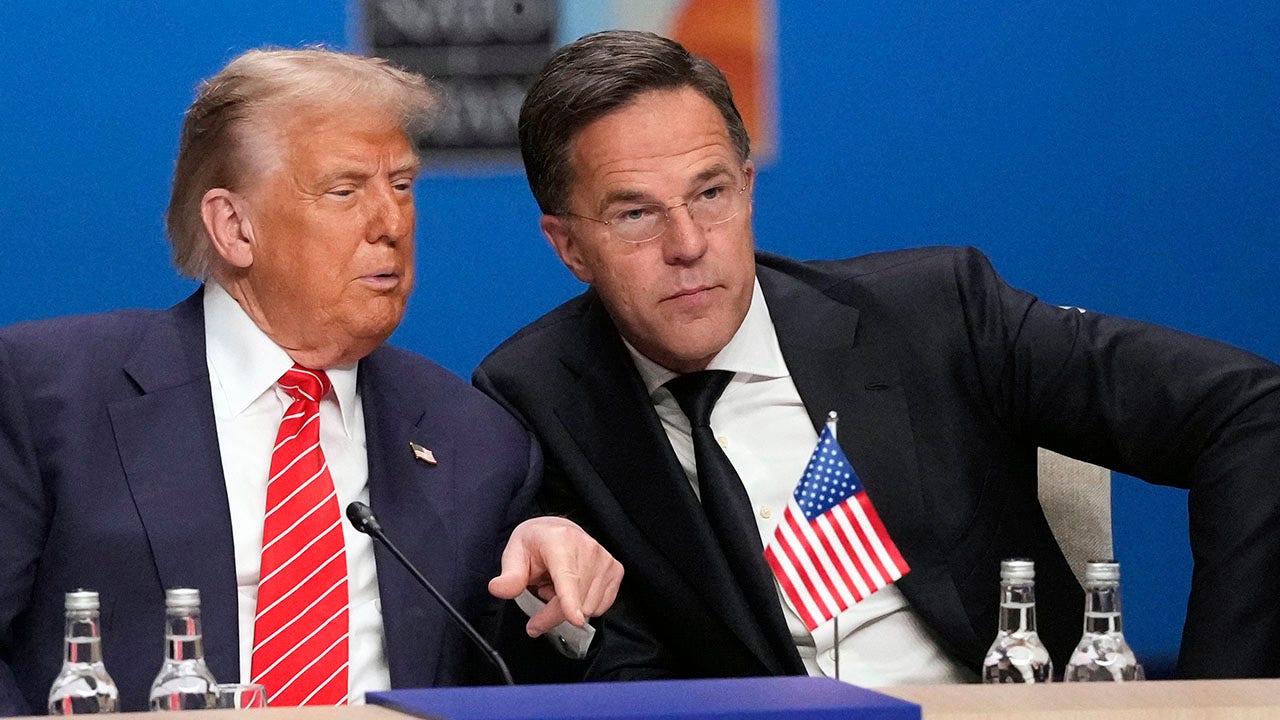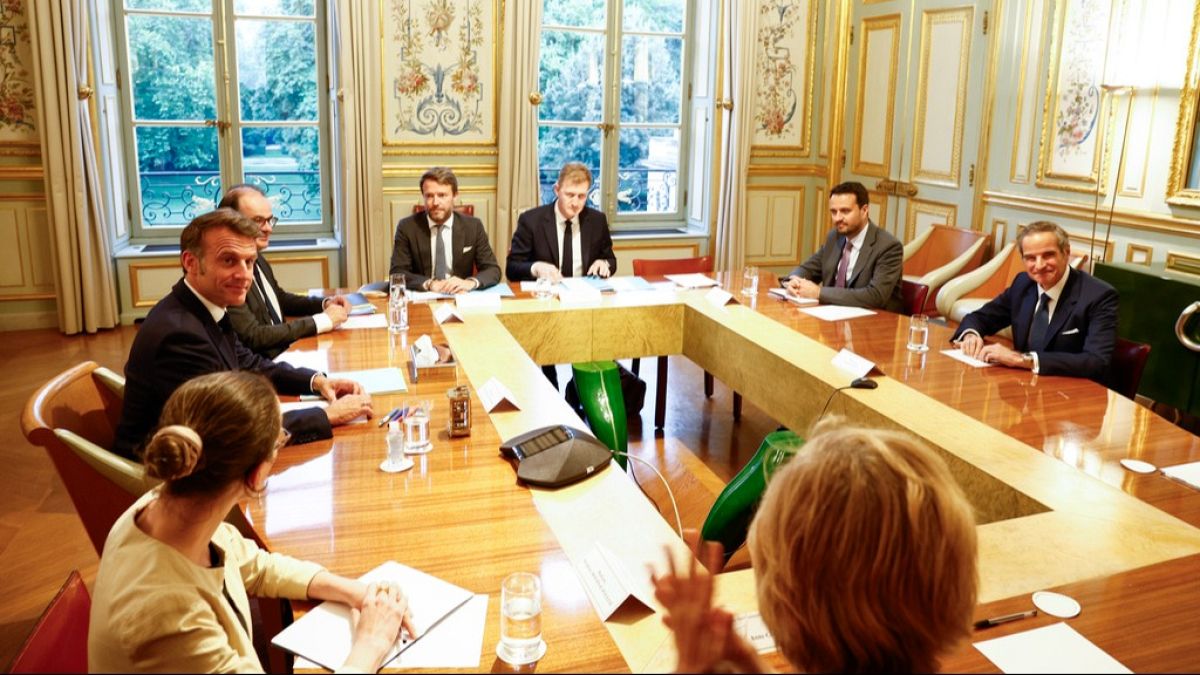World
Why the far-right is increasingly getting into power across Europe

Italy, Sweden and now Finland: Far-right parties in Europe have started to govern.
A shift is taking place little by little in Europe which could turn out to be a new political trend.
Previously on the margins of the political spectrum, far-right parties are now getting government roles alongside mainstream right-wing parties.
The latest case is in Finland where following three months of negotiations, the far-right nationalist party “the Finns” — which largely campaigned on an anti-immigration and anti-European Union agenda — became a member of the coalition government over the weekend.
Such parties are also participating or leading governments in Italy and Sweden, while in Spain the conservative People’s Party (PP) struck a series of coalition deals at regional and local level with the radical right Vox party, providing a possible blueprint for next month’s general election which they are tipped to win.
Extremely conservative parties have meanwhile been in power for years in Hungary and Poland.
Disillusionment with conventional parties
Analysts say that the reasons behind this trend vary from country to country, with immigration, the economy or the war in Ukraine among the drivers for the shift.
“In some countries, this is very strongly related —in many by the way, not only in those countries where they then assume a leadership role in government or a role in government — with the issue of migration,” Janis Emmanouilidis, deputy chief executive of the European Policy Centre, a Brussels-based think tank, said.
“In other countries, it is a way of showing the yellow or the red card to mainstream parties for issues related to the economy, with issues related to fears of people having with respect to transformation processes, which is happening in front of their eyes,” he added.
For Cathrine Thorleifsson, an associate professor at the University of Oslo and the head of the Norwegian Government’s Commission on Extremism, this trend is not new. She explained to Euronews that these different parties have been increasing their electoral support for the past decade.
For her, immigration and Euroscepticism are the main drivers.
“Lots of voters are quite disillusioned with ordinary conventional political parties. And we seem to be in a new globalised crisis,” she told Euronews.
“First, you had the financial crisis, the pandemic, (the) economic fallout of the war in Ukraine and (the) cost of living crisis. And in times of crisis, some of these populist right parties, they do find quite simple solutions to these very complicated problems and promising to protect the people and also sovereignty against the perceived and real threats from the outside,” she said.
The way people feel in times of crisis has historically been the same, she explained.
“Very often also religion is being emphasised. In the case of Spain now it’s an appeal to traditional values and way of life. It’s an appeal to Catholicism. And it’s also really in all countries a veiled threat to liberal values associated with liberal democracy and the EU,” she said.
European elections ahead
As next year’s European elections loom, new political alignments could be formed.
The main parties — the conservative European People’s Party, the liberals from Renew, and social democrats of the S&D — are likely to emerge weakened, according to recent polls.
The recent open “flirt” between the EPP and the more right-wing European Conservatives and Reformists Group (ECR), notably on environmental issues, has raised concerns over policy-making after 2024.
“A stronger election result for extreme forces will push the mainstream in a certain direction, will put it under pressure. Will that lead then, to the end of the EU? This is not, I think, what is on the cards, but it could make things more difficult at the European level,” Emmanoulidis said.
But, he nonetheless stressed that “this (is) happening at a time where actually you need a higher level of ambition with respect to the EU’s response to the many challenges we are facing, to the many transformational challenges we’re facing, whether it has to do with geopolitics —just look at Ukraine and the international order —, look into the green transformation, look into digital transformation”.
Spain will hold snap elections on 23 July, and analysts suggest that its result will play a key role in determining the future orientation of the EPP.
For Thorleifsson, this trend is here to stay and could have real implications for liberal democracy as it grows.
“The real threat is, of course, to democracy itself and see how democracies in our time, they do die quite slowly by democratically elected authoritarian leaders,” she said.
“Let’s take Hungary as an example, where there’s been a gradual shift from open democracy to more authoritarian rule, where you also see that minority rights are jeopardized and also judiciary independence and the checks and balances of power. And often you will have conventional conservative parties forming coalitions with populist parties, but they do not manage to tame them. So what you see is a net change in both ideology and rhetoric and in policy, which has real implications for democracy and human rights,” she added.
Meanwhile in Germany, the far-right Alternative for Germany (AfD) is also polling high with calls to stop migration and targeting the government’s green agenda, while in France, the far-right remains among the key political players of the country.

World
The Simpsons EP Blasts Bogus Reports About Marge’s Death in Season Finale: ‘Misleading Stories Go Viral’

ad
World
Iran's supreme leader slams Trump just days after US strikes on nuclear sites

NEWYou can now listen to Fox News articles!
The ceasefire between Israel and Iran did not stop Iranian Supreme Leader Ayatollah Ali Khamenei from firing off a post on X, slamming President Donald Trump.
“The U.S. president stated, ‘Iran must surrender.’ Needless to say, this statement is too big to come out of the U.S. president’s mouth,” Khamenei wrote.
On June 17, a few days before the U.S. carried out the strikes on Iran’s nuclear facilities, Trump took to Truth Social to demand an “unconditional surrender” from Tehran. In a separate message on the same day, Trump said the U.S. had “complete and total control of the skies over Iran.”
Trump also took a swipe at Khamenei himself, saying that the U.S. knew where the Iranian leader was hiding.
“We know exactly where the so-called ‘Supreme Leader’ is hiding,” Trump wrote. “He is an easy target, but is safe there — we are not going to take him out (kill!), at least not for now. But we don’t want missiles shot at civilians, or American soldiers. Our patience is wearing thin.”
Iran’s Supreme Leader Ayatollah Ali Khamenei speaks in a televised message, after the ceasefire between Iran and Israel, in Tehran, Iran, Jun. 26, 2025. (Office of the Iranian Supreme Leader/WANA (West Asia News Agency)/Handout via Reuters)
THE MISSING MULLAH: IRAN’S ‘SUPREME LEADER’ A NO-SHOW FOR NEGOTIATIONS, THEN HID AS US POUNDED NUKE SITES
“Under President Trump’s leadership, Operation Midnight Hammer was executed perfectly — obliterating Iran’s nuclear capabilities and bringing them to the table for a ceasefire. This historic outcome was only possible because of America’s military might and the strength of our Commander in Chief,” White House Deputy Press Secretary Anna Kelly told Fox News Digital.
Khamenei’s remarks appeared aimed more at projecting strength than reflecting reality.
Following Iran’s attack on Al-Udeid, the American airbase in Qatar, Khamenei bragged that Iran “delivered a heavy slap to the U.S.’s face.” However, Trump called it a “very weak response” before revealing that Iran gave the U.S. “early notice” of its planned retaliation.
“Iran has officially responded to our obliteration of their nuclear facilities with a very weak response, which we expected, and have very effectively countered. There have been 14 missiles fired — 13 were knocked down, and 1 was ‘set free,’ because it was headed in a nonthreatening direction. I am pleased to report that NO Americans were harmed, and hardly any damage was done,” Trump wrote. “I want to thank Iran for giving us early notice, which made it possible for no lives to be lost, and nobody to be injured.”
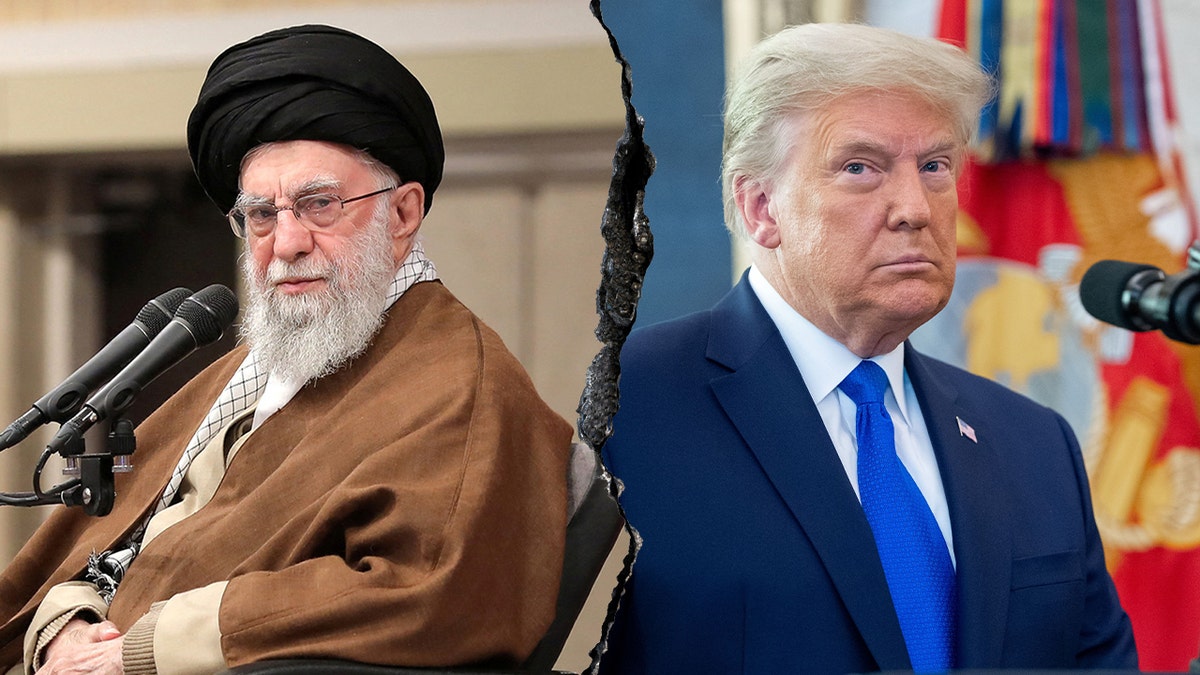
Iran’s supreme leader Ali Khamenei and President Donald Trump consider direct military engagement. Apr. 1, 2025 (Khamenei: West Asia News Agency, Reuters; Trump: SAUL LOEB/AFP via Getty Images)
FRONTRUNNERS EMERGE AS IRANIAN OFFICIALS DISCUSS POSSIBLE SUCCESSORS TO KHAMENEI: REPORT
Since Israel launched its operation against Iran, Khamenei has been in hiding and, according to Reuters, his family is being guarded by the Vali-ye Amr special forces unit of Iran’s Revolutionary Guard Corps. Some believed — and even hoped — that the end of the nuclear program would also mean the end of the Islamic Republic’s rule; however, reports of an internal security crackdown have made the possibility of regime change seem less likely.
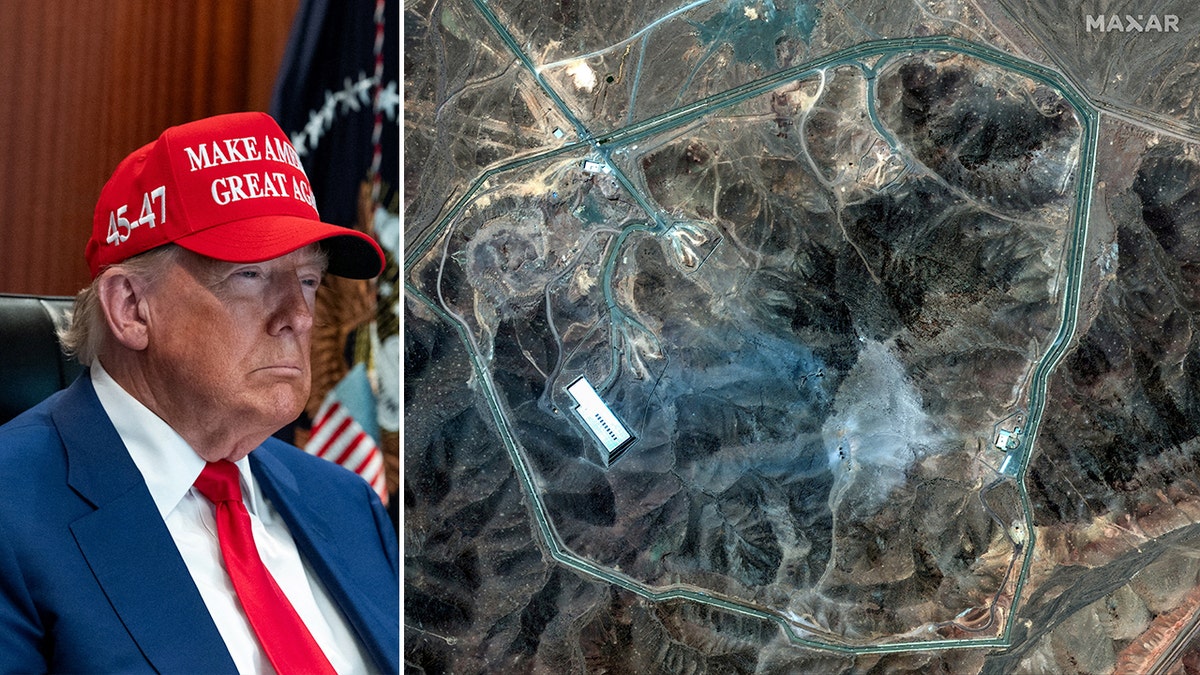
President Donald Trump is shown in the Situation Room next to an image of the damage done to Iran’s Fordow nuclear facility on Jun. 21, 2025. (The White House; Maxar Technologies via Reuters)
The regime is reportedly carrying out mass arrests and executions. The Human Rights Activists News Agency (HRANA) said Monday that 705 individuals had been arrested in Iran on “political or security-related charges.” Many of the charges involve allegations of espionage on behalf of Israel.
Three people have reportedly already been executed for allegedly spying on behalf of the Mossad, Israel’s equivalent of the CIA, NBC News reported, citing Tasnim, which is affiliated with the IRGC.
World
Searching for healing: Inside one of the last hospitals in Haiti’s capital

The most peaceful area in the entire hospital was a small patio at its centre, where patients rested on benches beneath a wooden pagoda. Nearby, a small, colourful obstacle course helped survivors regain their mobility after surgery and other intensive treatments.
That’s where we met four-year-old Alexandro and his mother, Youseline Philisma.
Alexandro was just one month old when an armed group set fire to the displaced persons camp where they were living. He was plucked from the flames, alive but severely burned.
Since then, Youseline had been taking him to Tabarre’s burn unit — the only one left in the country.
“When I come to the hospital, it’s another world. Everybody understands my little one. Everyone gives us a lot of love,” she told us.
Alexandro will need the burn unit’s care for the rest of his life. Surgeon Donald Jacques Severe is among the doctors treating him.
Severe could leave the country. His wife and children have already done so, departing four years ago for the United States. Armed fighters had overrun their home. Severe himself has a visa to live in Canada. But so far, he has not left.
His fellow surgeon, Xavier Kernizan, tried to explain the sense of duty he and Severe share.
“We know that if we’re not here, someone will struggle,” Kernizan said.
“Personally, we are close to burnout. Sometimes we are close to depression. But there is also this satisfying feeling of having helped to improve someone’s daily life, of offering a little hope to someone in their darkest moments.”
But if the security situation continues to deteriorate, it is impossible to know whether Tabarre Hospital will survive.
On April 11, my documentary team and I drove out of the hospital gates for the first time in a week. We were heading to Petion-Ville, one of the few places in Port-au-Prince still under government control.
There, we walked across a football pitch near the Karibe Hotel, where a helicopter from the World Food Programme picks up passengers. It’s the only way out of the capital right now.
We clambered into the helicopter, its rotors began their churn, and the Haitian capital began to grow smaller as we rose into the air, sailing above the bubble of violence below. I remember feeling relief.
The staff at the hospital stayed behind. They have no intention of leaving.
-

 Arizona1 week ago
Arizona1 week agoSuspect in Arizona Rangers' death killed by Missouri troopers
-
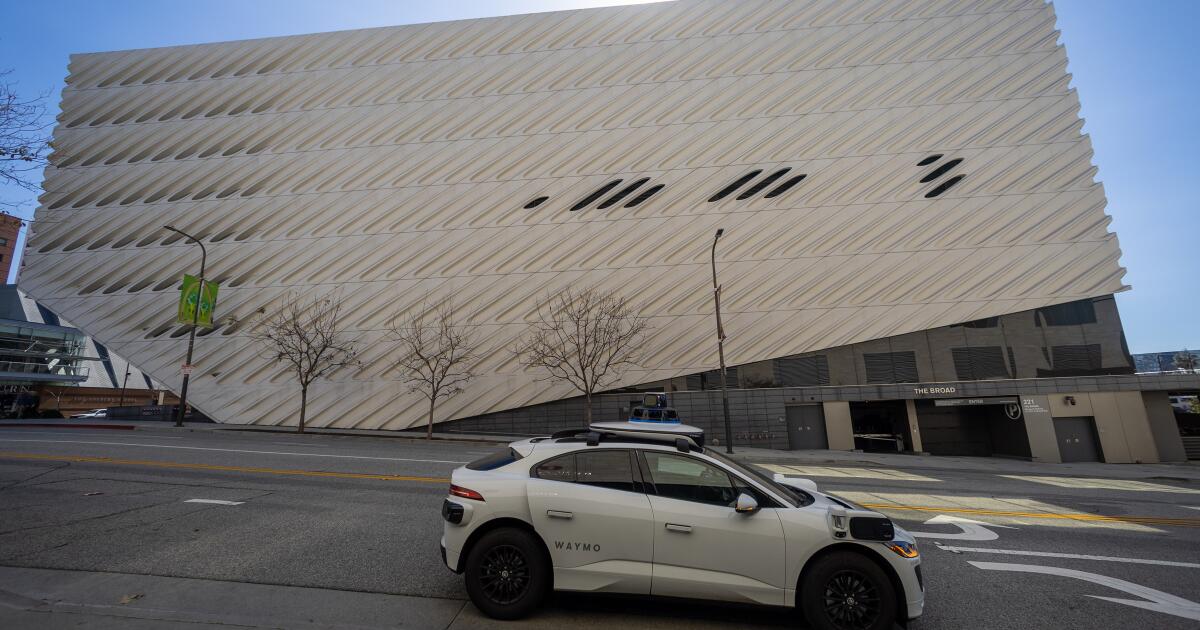
 Business7 days ago
Business7 days agoDriverless disruption: Tech titans gird for robotaxi wars with new factory and territories
-

 Business1 week ago
Business1 week agoProtesters are chasing federal agents out of L.A. County hotels: ‘A small victory’
-

 Technology1 week ago
Technology1 week agoSenate passes GENIUS stablecoin bill in a win for the crypto industry
-

 Technology1 week ago
Technology1 week agoOpenAI awarded $200 million US defense contract
-
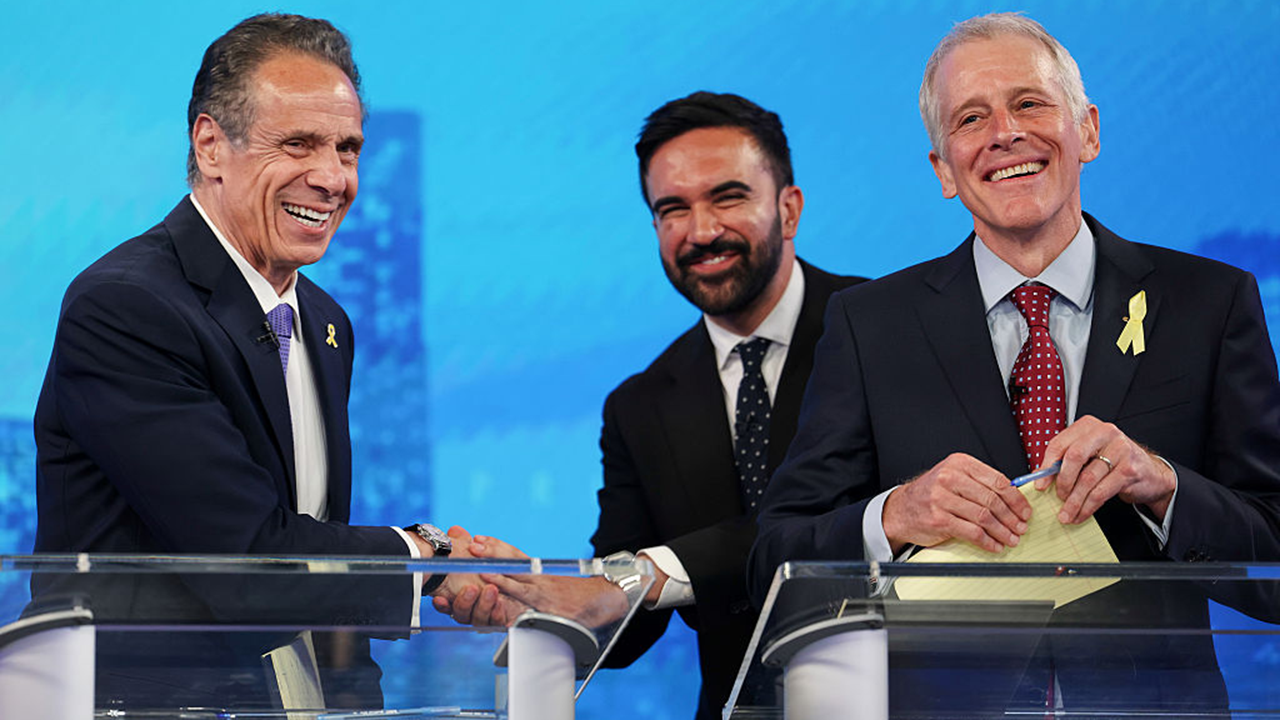
 Politics1 week ago
Politics1 week agoCuomo team denies AOC’s claim he’s using NYC mayor run as a springboard to the White House
-

 News1 week ago
News1 week agoVideo: Inside Trump’s Shifting Stance on Iran
-

 Technology7 days ago
Technology7 days agoSpaceX Starship explodes again, this time on the ground















